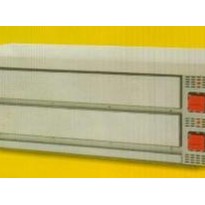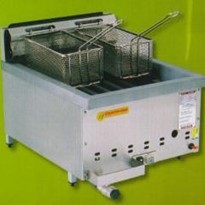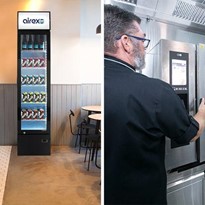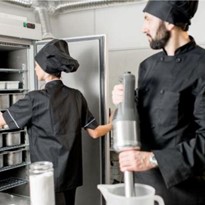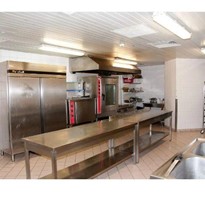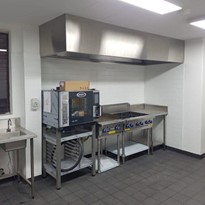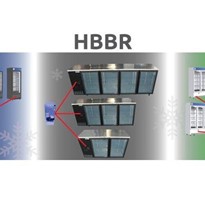Buying used equipment is a great way for businesses to cut costs when first starting up or when they need to replace equipment they already have; however, it is important to know what to look for when shopping for used equipment, lest you end up with a piece you regret. Used equipment is not like a used car, and there are no real instances to test out a piece before you purchase, so it is important to proverbially “kick the tires”. Here are a few things to think about before making your purchase, regardless of what kind of piece equipment you are shopping for, that should help you avoid purchasing an albatross
Prioritize Purchases
When you are shopping for several pieces of equipment, you need to know which ones you are willing to purchase used, and which you would rather purchase new.
Importance In Operation – Unless capital is an issue, most restaurateurs tend to spend the most money on the equipment that will be used most frequently in their kitchens. Pizzerias, for example, tend to buy new pizza ovens when they open up, but may purchase other used items such as used prep tables or dining room furniture (which will not be used frequently in a take-out establishment).
Number Of Pieces Being Purchased – The more equipment being purchased at a single time, the greater the expenditure. In every business startup and reinvestment capital are usually hard to come by, so purchasing a blend of used and new (or all used if it better suits your budget) can help business owners stay within their budget while still getting all of the equipment they need.
Usage – Take stock of how much each particular piece of equipment you are looking at will be used at both peak and slow periods. This will not only help you decide the proper size of the unit to best fit your operation, but also the stress your operation will place on your prospective piece. An all-night establishment, for instance, will (most likely) have all or of a part of their griddle running 24/7, so it would be a wise decision for them to invest in a new piece; how a small restaurant that is only open for lunch that has two menu items that utilize their griddle could save significantly if they purchase one used.
Check the Condition
Likely a no-brainer, be sure to examine the condition the piece is in. Not all used pieces are created equally, and some pieces get used more frequently than others. In fact, some used pieces can even be on their 3rd or 4th owner when you are checking them out. It is harder to examine a used piece on found on the internet; however, businesses stand behind their products, and we tend to avoid pieces that don’t work or have problems. Nonetheless, a newer used model will, in the long run, definitely last longer. In some instances, a scratch and dent model may be an ideal way to get a new piece that is still functional but significantly reduced in price.
Research Brand Names
Some brand names have the tendency to have a longer shelf life than others. Without going into specifics names, there are just some companies that build better products than others regardless of country. Do some independent research on what the better new brands are, engage in an industry professional for guidance.
Consider the Availability of Parts
Take note of the age of the model, and the access you have to replacement parts. It is important to remember that you are buying a used piece, and that something could go wrong down the road. By taking the time to research how easy to come by expensive parts are for models you are comparing, it will let you know which models will be easy to fix should something go wrong in the future. This is especially important for things like refrigeration, or when looking at a piece that has some age.
Warranties
Access to parts is incredibly important when shopping for used pieces because these pieces don’t have a warranty. Manufacturers have varying warranties for the wealth of pieces of equipment for the foodservice industry, but unless you purchase a piece directly from an owner that transfers a warranty over to you (something that rarely happens), your used piece will not have a warranty. Consumers that depend on manufacturer warranties would probably do well to purchase a new piece, or to examine a scratch and dent model (because some scratch and dent’s still come with a full warranty despite aesthetic faults).
Think Simple
When purchasing a used piece, the simpler the equipment, the better. It is a common rule of thumb that the more parts and pieces equipment has, the more that can go wrong. Gas equipment traditionally has simpler parts, and is just generally more mechanical, so less tends to go wrong in the long run. For this reason, used gas pieces tend to get purchased relatively quickly. That is not to say used electronic equipment is not useful or worthwhile, but it should be noted that more obscure replacement parts may needed if something goes wrong. Additionally, businesses tend to forget that they can buy used items that may not necessarily be considered “equipment”. Prep tools, furniture, prep tables, and sinks can all be found used, and the savings that can be tallied purchasing a wealth of smaller items used may allow your business to purchase a new piece in other areas.






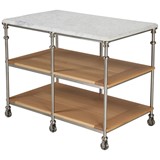
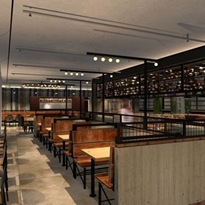


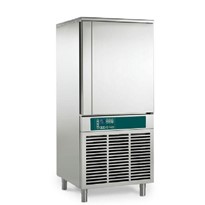

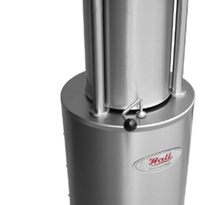
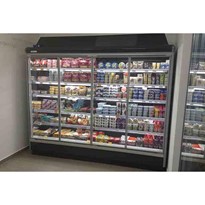
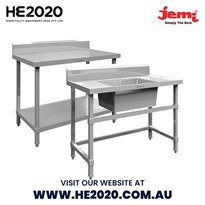
-205x205.jpg)
